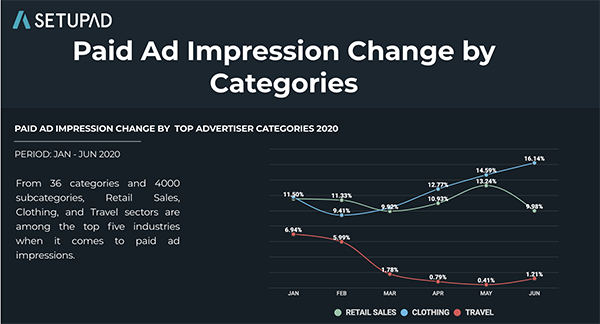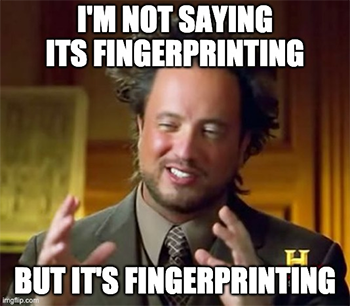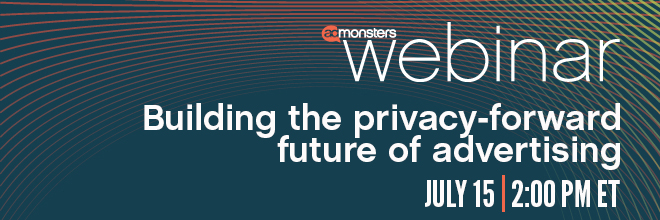 |
||||||||||||
|
||||||||||||
| Pubs Dragged Down by Facebook Ad Boycott |
| We know what you’re thinking, publisher—all those big brands boycotting Facebook in July means moolah is coming your way fast! Wait, were you being sarcastic? Were we being sarcastic? We just can’t tell anymore. We’re kind of two… Well, maybe three minds at AdMonsters. While we see how premium publishers could see some additional revenue as marketers re-allocate spend, our cynical side thinks many brands were going to cut down on marketing with the third quarter and the pandemic back on the upswing. But then as Media Nut Josh Sternberg points out, many publishers also leverage Facebook for audience extension to fulfill ad buys. On top of that, Facebook is an essential driver of traffic for branded content campaigns—traffic goals are going to be that much harder to reach if the brand says Facebook is off limits. Another publisher source told us they’re facing obstacles because brands that are involved in the boycott have guaranteed social elements in campaigns. If the Facebook ad boycott isn’t costing publishers revenue, it’s certainly causing them migraines. As if they didn’t have enough problems... |
| Facebook CEO Mark Zuckerberg went and said the quiet part out loud the other day in a staff meeting: "my guess is all of these advertisers will be back on the platform soon enough" (sub required). Sternberg gets a few media executives to (anonymously) make the situation clear: the boycott will “make no difference to Facebook, they say, and instead it’s just a kick in the gut to digital media companies that use the platform for everything from fulfilling sponsor content deals to driving traffic to their sites.” While a month-long boycott from major brands is undeniably embarrassing, the concessions out of Facebook will be minimal. We argue the company isn’t willing to suffer the costs of installing the content moderation technology and staff that its scale demands. Definitely Facebook’s shareholders won’t stand for it! That’s no reason to give up hope for change—the bread and butter for Facebook is smaller advertisers that simply don’t have quality digital media alternatives. Digital publishers are aligning and working to solve that problem. |
| Google and European Publishers Butt Heads Over Data |
 |
| Only Enrico Morricone, RIP, could have provided the soundtrack for the standoff between Google and European publishers. In a plot convoluted enough to be a Leone classic, the updated Transparency and Consent Framework (TCF) from IAB Europe to meet the requirements of GDPR requires separate consent for being served personalized ads and the collection of data for profiles. Some publishers are planning to ask the former question and skip the latter, apparently to starve Google of data. Google is displeased! The company says in return that it will shut off its demand hose for any publisher refusing to ask for data collection. Sharp but business-appropriate barbs are shared while both sides stake out their stances and exchange nasty stares. In other words, negotiations are ongoing. |
| It’s hard to imagine a similar standoff going down in America with the absence of even a glimmer of federal privacy regulation, but Google’s strong-arming certainly doesn’t look good as federal and state governments finish up their antitrust filings. European governments (and the European Union) are doubtlessly paying close attention to these negotiations as well. |
 |
| Clothing Tops Paid Ad Impressions |

Image source Setupad
|
| As the economy starts to reopen, programmatic ad spend is slowly beginning to pick up. But recent research reveals that not all categories are created equal when it comes to how programmatic ad spend fared amid the pandemic. Not surprisingly, according to data gathered by Setupad over the last six months, the travel industry experienced the most significant change in paid ad impressions. At the beginning of 2020, the travel industry was among the top five industries, but by the end of May, it dropped to 0.41%. In June, the clothing industry showed the highest percentage of the paid ad impressions in 2020, with 16.14%. Paid ad impressions in the clothing sector grew by 14.78% during weeks 22-26 of 2020 compared to a similar period last year, while the travel sector experienced the most significant drop on average by 90.53% during the same weeks compared with 2019. Retail dropped on average 35.97% in the past five weeks of 2020 compared to the same period of 2019. |
|
While consumers were ordered to stay at home during the pandemic, their content consumption and shopping behaviors changed dramatically. We saw unprecedented numbers of people turning to digital media over the past few months, but rarely did the ad spend follow. As media costs nearly bottomed out, it became a prime market for embattled DTC and SMB brands to stake their claim. Why else would clothing be doing so well? Maybe we should credit it to the stay-at-home fitness craze taking off at a yoga mat near the foot of your couch. Yes, activewear and sweatpants to wear on your zoom calls are en vogue. But seriously, the fact is people never stopped shopping for clothes.Sadly, the pandemic was also breeding ground for a swarm of fake e-commerce sites that heavily relied on programmatic to scam shoppers. It’s no surprise that a number of those fake sites were dressed up as clothing companies. |
| Advertising Doesn’t Earn Brand Trust |
| In recent weeks we’ve seen a lot of blowback from performative allyship, as brands posted black squares in support of Black Lives Matter all over social media. But in order for marketers to earn consumer trust, people want to see action. Sixty-percent of people said they would buy from or boycott a brand, based on their response to protests for racial justice, according to a recent Edelman report, Brands and Racial Justice in America. “Trust has become a game-changer for brands because it addresses people’s fears about personal safety, most notably vulnerability on health, financial stability, and privacy,” said CEO Richard Edelman. “The long-held practice of standing aside during controversies and crises is no longer an option for brands.” In fact, brand trust now comes in second place to price as people make purchase considerations, according to Edelman’s recent Brand Trust Barometer. Seventy-percent of people said trusting a brand was more important than it was in the past, and 85% percent wants brands to solve their problems and 80% want them to solve society’s problems. But it’s not in with advertising that brands earn trust. Seven in 10 people in the Edelman study said they avoid advertising, with 78% of 18-34 and 73% of 35-54 year-olds using one or more avoidance strategies or tools. |
| If the pandemic (and now racial unrest) has taught us anything, it’s that people’s shopping behaviors and perceptions of advertising are greatly changing. Brands that are unable to provide personal or societal value to consumers with their actions will be canceled with a quickness. And brands that act in consumer’s and society’s best interest will earn greater trust, leading to higher sales and engagement. Consumers are also more willing to share their personal info with brands they trust, which provides marketers with the opportunity to craft more meaningful messages that are personalized and relevant across platforms. |










